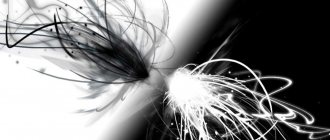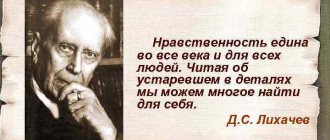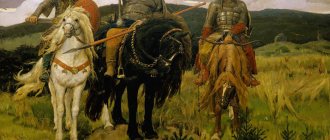If you ask any person who has even a little contact with medicine, with whom the development of this field of knowledge as an independent science began, then everyone will name one name - Avicenna. Quotes from this philosopher amaze us with their depth and are still relevant today. His fate lines could be enough for several full lives. The directions of his research concerned a variety of areas: from bacteria invisible to the eye, which Louis Pasteur announced only 800 years later, to space. Today we will try to comprehend genuine wisdom that has survived centuries.
Inquisitive Mind
You may be interested in: The Yeltsin era: history, character and results of the reign
The boy was named Abu Ali Hussein ibn Abdullah ibn al-Hasan ibn Ali ibn Sina. “Ibn Sina Avicenna” he will be called later, and by this name he will be known in the West. And in the year 980 and on the day of August 16, a son was born into the family of a tax collector and his wife with the beautiful name Sitara, meaning “Star”. His parents could not even imagine that this little boy would become a world-famous doctor and also a vizier at the court of one of the emirs. But this will happen in almost 25 years...
From the moment Abu Ali spoke, he asked so many questions that the parents realized that their son needed to be sent to study so that the teachers would puzzle over the answers. And after the boy memorized the Holy Book “Koran”, his path was predetermined: he became a student at a school where Muslim laws were studied. The youngest in age, Avicenna quickly achieved impressive success, and high school students turned to the 12-year-old for advice.
LiveInternetLiveInternet
-Music
—Tags
—Categories
- Psychology (17)
- Love (14)
- Relationships (13)
- Spirituality (12)
- Painting, art (10)
- Aphorisms (9)
- Healing (9)
- Food (9)
- Humor (7)
- Crimea (6)
- Beauty (6)
- Letters, memoirs, stories (5)
- Leonardo Da Vinci (5)
- Creative (4)
- Photo processing (4)
- From the other world (3)
- Magic of stones (2)
- Drawing (2)
- Astrology (1)
- Numerology (1)
Life in Bukhara
You may be interested in: Levels of communication: concept, types and classification
Ibn Sina was born in the small village of Afshan. There he began attending a regular school. Then the family moved to Bukhara, and this significantly influenced the boy’s development, since in this city there were many more opportunities to learn something new than anywhere else.
In the emir's palace there was the richest library in the world, and many people famous for their learning, such as Abu Abdallah Natili, came to touch ancient knowledge. He had great knowledge in philosophy and logic, geometry and astronomy, and it was under his leadership that Avicenna comprehended these sciences. He has a great many quotes on the importance of knowledge:
They say about wisdom: it is priceless, but the world does not pay a penny for it.
The fact that Ibn Sina followed his own path from a young age and on this path he had to face opposition more than once is evidenced by the following conclusion:
If from a young age you have chosen the path to the cherished truth, do not argue with the ignorant, forget their advice.
Independent search for truth
By the age of 14, the young man realized that Abu Abdallah Natili had passed on to him all the knowledge he possessed. From this age, Ibn Sina began to independently comprehend science: he was well versed in geometry and astronomy, and the humanities (music, poetry) came easily to him. This is how he reached the “Metaphysics” of the Greek philosopher Aristotle. Repeated re-reading did not help to understand the ideas presented in this fundamental work. Only after studying Al-Farabi’s interpretations did a “breakthrough” and awareness of the pattern of world development take place.
Examining the known facts of Ibn Sina’s biography, we can say that his mind sought to comprehend all areas of knowledge available to him in order, starting from them, to create the science of the future. And Avicenna’s quotes about the search for truth speak for themselves:
The soul of the universe is truth.
And the scientist also understood the danger of stupidity not only for its “owner”, but also for those around him:
Just as the clear light of the sun is hidden from the blind, so there is no road to truth for fools.
20 years old by modern standards is still youth. But at this age Ibn Sina was a famous scientist. His authority is evidenced by the fact that, as a sixteen-year-old boy, he was invited to the Emir of Bukhara to determine the diagnosis and prescribe treatment.
And before that there was painstaking work to collect information about diseases and analyze it. In addition, as a doctor, Avicenna not only prescribed treatment based on already established methods, but also conducted detailed observations of all manifestations of the disease, as well as the slightest deviations in the behavior and mood of the patient, in order to make the description of the disease voluminous and multidimensional. He was convinced that it was possible to cope with any disease with the necessary knowledge:
There are no hopeless patients. There are only hopeless doctors.
Avicenna's statements about medicine. Avicenna - quotes and aphorisms
On August 16, 980, the legendary Abu Ali Hussein ibn Sina, whom Europeans used to call Avicenna, was born. We have collected the most valuable advice from Avicenna (980 - 1037) on how to live a healthy life. The recommendations of the “king of doctors” Avicenna were written 1000 years ago, but they are still relevant. For Avicenna, medicine was his life's work.
Avicenna is a Persian scientist, philosopher and physician, a follower of Aristotle in ancient Eastern culture and science. His full name is Abu Ali Hussein ibn Abdallah ibn Sina, and in the West he is known as Avicenna. Young Avicenna, at the age of 16, treated the Emir of Bukhara himself, and later he became the court physician of many rulers of the ancient East. Ibn Sina was the court physician of the Samanid emirs and Daylemite sultans, and for some time he was the vizier in Hamadan. Avicenna wrote more than 450 works in 29 areas of science , of which only 274 have reached us. Popular rumor called him “the king of doctors.”
Avicenna himself wrote about his path to medicine: “I began studying medicine, supplementing my reading with observations of patients, which taught me many treatment techniques that cannot be found in books.”
“The Book of Healing” , written in Arabic, is dedicated to logic, physics, biology, psychology, geometry, arithmetic, music, astronomy, as well as metaphysics. The Book of Knowledge (Danish-name) is also an encyclopedia.
Ibn Sina wrote serious scientific works in the form of poems using quatrains. Among his works there are also lyrical poetic works - quatrains and rubai.
From black dust to celestial bodies I have unraveled the secrets of the wisest words and deeds. I avoided deceit, unraveled all the knots, Only the knot of death I could not unravel.
Ibn Sina paid great attention to physical exercise, calling it the most important condition for health. Avicenna placed nutrition and sleep patterns next to physical education. According to the “king of doctors,” the main thing in the art of maintaining health is balancing the following factors:
1) balance of nature 2) choice of food and drink 3) cleansing the body of excess 4) maintaining a correct physique 5) improving what is inhaled through the nose 6) adjusting clothing 7) balance of physical and mental movement
He also believed that “throwing in bed between wakefulness and sleep is the worst of all states.”
Avicenna on proper nutrition:
Be moderate in food - that’s the first commandment. The second commandment is: drink less wine.
When it comes to food, don’t be greedy for any kind of food. Know exactly the time, place and order.
Calmly, slowly, without fuss You should eat once or twice a day.
The harm caused by a very tasty food is that you can eat too much of it.
Drinking very cold water is not good.
Avicenna on physical activity:
Movement can replace many medications, but not a single medicine in the world can replace movement.
“A person who exercises moderately and in a timely manner does not need any treatment aimed at eliminating the disease.”
“He who gives up physical exercise often wastes away, because the strength of his organs weakens due to refusal to move.”
“Idleness and idleness not only give rise to ignorance, they are at the same time the cause of disease.”
Avicenna on the benefits and harms of wine:
Wine is our friend, but there is deceit in it: Drink a lot - poison, drink a little - medicine.
Do not harm yourself with excess, drink in moderation - and your kingdom will last.
Wine is your friend while you’re drinking, but if you’re drunk, it’s your enemy, It’s snake venom when you’re drunk like a fool.
The less often a hand raises the table cup of wine, the stronger it is in battle and the braver and more skillful it is in business.
Constant drunkenness is harmful, it spoils the nature of the liver and brain, weakens the nerves, causes nerve disease and sudden death.
Avicenna healthy sleep:
“Healthy people need to pay proper attention to sleep. Their sleep should be moderate in duration, not excessive; they should beware of the harm caused by insomnia to the brain and to all their powers...
Sleep strengthens all natural forces... And excessive sleep produces the opposite of all this. It gives rise to lethargy of mental strength, dullness of the brain and cold illnesses... Tossing about in bed between wakefulness and sleep is the worst of all conditions...
Sleeping on an empty stomach is not good; it weakens your strength. It is also harmful to sleep with a full stomach... For such sleep will not be deep, but restless...
Know that a blanket and a high pillow promote health. In short, the members should be positioned so that the head is higher than the feet...
The best position during sleep is considered to be when sleep begins by lying on the right side, and then turns to the left. If sleep begins with lying on your stomach, then this helps digestion well... People who are weak from illness usually sleep on their backs. .. Such people also sleep with their mouths open due to weakness of the muscles that compress both jaws...”
Avicenna about healthy housing...
“Whoever chooses a place of residence should know what the soil is like there, what the water is like there... He must know whether this place is exposed to the winds or is located in a basin, and what kind of winds there are - whether they are healthy and cold...
Then the windows and doors of the house should face east and north ; and also so that the sun reaches any place in them... He must find out what the state of the local residents is in relation to health and illness...
Solar period of life
Avicenna was a truly integral personality. His life was consciously devoted to science from the age of 18. Gradually, his works on medicine, philosophy, and astronomy began to be published.
The enlightened ruler of Khorezm Shah Mamun II invited him to his service. This was a great success, since progressive rulers did not meet often in those days. Mamun II sought to gather in his palace the best representatives of the scientific world, poets, musicians and philosophers. In addition, he was distinguished by his generosity and considered the free development of science and art to be the primary task of a statesman.
The beginning of wanderings
The fame of the enlightened court of Mamun II spread far beyond the borders of Khorezm and reached the ears of Sultan Mahmud of Ghaznavi. And he wanted the whole cream of the scientific world to come to him from Bukhara, which the Khorezm Shah was notified about. Mamun II understood the consequences of such an invitation and invited everyone who wished to avoid the “honor” of serving at the court of Sultan Mahmud to take camels and everything necessary for the journey and leave Bukhara.
Avicenna's quotes about friendship and rulers give an idea of the difficult period of his life:
If my friend is friends with my enemy, then I should not hang out with this friend. Beware of sugar that is mixed with poison, beware of a fly that sat on a dead snake.
Truly wonderful things: brainless bodies are lifted up; nature endowed them with stupidity, but their family nobility lifted them up.
Avicenna - quotes and aphorisms
Abu Ali Hussein ibn Abdallah ibn Sina (Avicenna), (980–1037), Persian philosopher, physician, poet, musician
The soul of the Universe is truth.
From black dust to celestial bodies I have unraveled the secrets of the wisest words and deeds. I avoided deceit, unraveled all the knots, Only the knot of death I could not unravel.
He who is old cannot burn with a young fire.
Constant drunkenness is harmful, it spoils the nature of the liver and brain, weakens the nerves, causes nerve disease, and sudden death.
A person who exercises moderately and in a timely manner does not need any treatment aimed at eliminating the disease.
Be moderate in food - that’s the first commandment. The second commandment is to drink less wine.
If I do not make a path to the hearts of people, they will not communicate with me, although they will be neither for nor against me.
One who gives up physical exercise often wastes away, because the strength of his organs weakens due to refusal to move.
If you engage in physical exercise, there is no need to take medications taken for various diseases, if at the same time you follow all other requirements of the normal regimen.
He who does not value happiness is approaching unhappiness.
There are no hopeless patients. There are only hopeless doctors.
Tell a sick person that you have a stomach ache - a healthy person will not understand.
If my friend is friends with my enemy, then I should not hang out with my friend. Beware of sugar that is mixed with poison, beware of a fly that sat on a dead snake.
Idleness and idleness not only give rise to ignorance, they are at the same time the cause of disease.
A person would not survive alone. Everything he needs, he receives only thanks to society.
A doctor must have the gaze of a falcon, the hands of a girl, the wisdom of a snake and the heart of a lion.
Everything that undergoes the action of a proximate cause experiences it through the medium of an analogue transmitted to it by this cause, as is clear from induction. The heat of fire, for example, affects a particular body, only transferring to it its analogue, which is heat. The situation is exactly the same with other forces from among the qualities. Thus, a rational soul influences another rational soul similar to it, only by transmitting to it its analogue, which is the intelligible form; the sword cuts only by transferring its external form to the object experiencing its action; The sharpener sharpens the knife only by imparting to its edges an analogue of what it touches, namely the evenness and smoothness of the parts.
The soul is like a glass lamp, knowledge is the light that gives fire, and the wisdom of God is oil. If the lamp is on, you are alive; if it goes out, you are dead.
Wisdom is what prepares us for the greatest happiness in life above.
The purpose of the power of reproduction is to preserve the species, for the desire for longevity is something flowing from the deity who rises above everything. And in that which is not capable of continuing to exist as an individual, but is capable of continuing the existence of the species, a certain force is impelled to compensate for it by the next individual, so that in this way its species is preserved. Thus, the nutritional force replaces what is decomposed in the individual, and the reproductive force replaces what is decomposed in the species.
The power of reproduction is placed in a very sensitive organ, so that it contributes to the desire for intercourse through lust. Otherwise, if there was no certain pleasure in this and if it were not an object of desire, no one would bother himself with this, for this is not required for the continued existence of an individual.
The doctor has three weapons: a word, a plant, a knife.
A fool and a braggart cannot keep secrets, Caution is truly beyond praise, A secret is a prisoner if you protect it, You are a prisoner of a secret, you just blabbed it.
A philosopher should use symbols and allusions in his books. After all, it is known how Plato condemned Aristotle for spreading wisdom and demonstrating knowledge. And Aristotle completely agreed with him: “Although I did this, I left many gaps in my books, and only a few of the learned and intelligent can fill them.”
More on the topic:
- Quotes from Persian authors
- Quotes and aphorisms by Rudaki
- Baba Kuhi Shirazi - quotes and sayings
Popular:
- Meetings and separations
- Happiness and unhappiness
- Quotes by Paulo Coelho
Comments:
- Isomov B.S. April 30, 2021 at 09:17
Abu Ali ibn Sino is the value of all humanity!
- Anonymous November 21, 2021 at 00:03
Ibn Sina was born in the town of Afshana, Peshkun district, Bukhara region, which is located near the ancient city of Bukhara in Uzbekistan. He had access to the Bukhara library, since he was a close associate of the emir, who, as a sign of gratitude to the scientist for curing him from an illness, gave permission for this. He lived in Bukhara for a long time, but in the end he was subjected to religious persecution, as he conducted scientific research, which was then considered sinful. As a result, I ended up in Iran.
- Anonymous June 13, 2021 at 02:13 pm
There is no end to these disputes! The fact is that they are our fellow countrymen!!!
- Anonymous January 23, 2021 at 2:18 pm
Avicenna - Persian Tajik I adore him Our ancestors
- no matter December 9, 2021 at 07:53 pm
Firstly, Samarkand and Bukhara were not the territories of the Tajiks, since Turkic states existed in Central Asia for thousands of years and the modern appearance of Bukhara was also built starting from the era of Karakhanid rule. and Modern Samarkand was built by Temur. I also disagree about the language, because an educated person should know that at the time of the development of science and art, Persian and Arabic languages were the lingua franca languages, that is, the languages of diplomacy, since now the lingua franca language is English. Secondly, Alisher Navoi was not an orphan and Jami did not raise him. Do not confuse the state propaganda educational heresy with historical data.
- Dr. Khurshed May 24, 2021 at 2:10 pm
Azizjon Ganievich you are wrong. Bukhara and Samarkand were Tajik territories. Therefore, all scientists living in these areas wrote in Farsi and Dari. These are Abu Ali ib Sina, Al Beruni, Omar Khayyam, Zakariyo ibn ar Rozi. All of them were Tajiks. When divided, these territories remained to the Uzbeks.
- Azizjon Ganievich September 12, 2021 at 12:05
from the fact that he wrote all his works in Farsidari and lived in Bukhara, the center of Islam and science, this is known to everyone, but it’s funny to me that he ate pilaf, which today is called Uzbek, and the Uzbeks as a nation appeared after 6 centuries. and that’s thanks to Abdurakhman Jami, who raised an orphan and gave knowledge to the Great Alisher Navoi, the founder of Uzbek writing... So we have the same roots, LOOK AT THE ROOT...
- Anonymous July 17, 2021 at 8:22 pm
That’s right, in the city of Vabkent, which is not far from Bukhara.
- admin February 27, 2021 at 00:03
Thank you for your thoughtful reading, but one does not interfere with the other. Without even delving into the interaction and subordination of medieval Central Asian rulers and the transfer of lands from one ruler to another, it must be admitted that from 1015 to 1037 he lived in Hamadan and Isfahan - on the territory of modern Iran. The last 22 years out of 56 means a lot. But – thanks again.
- Musa Atakuziev February 26, 2021 at 10:08 am
Avicenna was not a Persian scientist, he was born on the territory of Modern Uzbekistan





